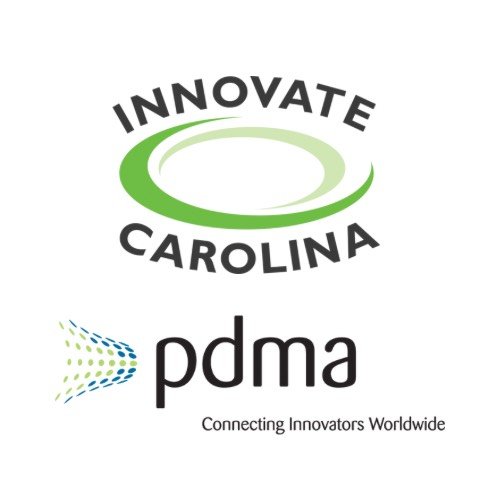Diversity isn’t just for humans
We live in a world of “wickedly connected problems,” forcing us to shift from independence to interdependence: human-to-human and human-to-machine. The workforce now consists of human, transhuman (augmented), and non-human resources; there is AI in TEAM. In this talk Ken will talk about the importance of diversity between humans on a team, and with new partners in AI. This is a compelling look at the future of work and new diversity considerations.
Ken hubbell, wells fargo
I am a talent maximizer - assembling, developing and enabling others to create proven customer and stakeholder value through strategic vision and tactical execution. I lead award-winning teams producing innovative solutions using established and cutting-edge technologies including multimedia, augmented reality, 3D simulation, virtual reality, voice user interface and video. I also coach and mentor others in the power of the innovation process. I have a Bachelor of Industrial Design from NC State University, a Master of Science in Instructional Technology from East Carolina University, and make my home in Raleigh, NC.
My clients have included Ingersoll Rand, Glaxo Smith Kline, Invensys/Powerware, NASA, Lockheed Martin, Caterpillar, Prudential Securities, General Motors, United Technical Institute, EthosVet, the FAA and many others.
Diversity of Disciplines on Medical Innovation Teams
Product development in the medical technology industry, when compared to industries such as consumer electronics, is staggeringly slow and costly. Medical product development has several challenges, including high amounts of regulation, costly clinical trials, and complex healthcare delivery systems. In an attempt to overcome these challenges, mitigate risk, and decrease time to market, large and small companies have increasingly turned to small, interdisciplinary teams. These teams, which mix diverse expertise from fields such as medicine, engineering, business, design and anthropology, have successfully brought products to market, and have been replicated in innovation programs at several universities.
Drawing on several years of industrial product development experience and creating innovation programs at Johns Hopkins, Rice, and Duke Universities, Eric and Paul will share the opportunities and challenges of diverse, interdisciplinary teams in medical innovation.
Paul Fearis, Senior Lecturing Fellow, Director of Design Insights at Duke University
Paul is Senior Lecturing Fellow, Director of Design Insights at Duke University. A creative entrepreneur, innovator, leader, manager and teacher with 30 years consulting experience in professional innovation, technology and product development consulting; including sales, operations, business management and start-ups. See his LinkedIn profile here.
Eric Richardson, Associate Professor of the Practice, Director of Design Health at Duke University
Eric is Associate Professor of the Practice in Biomedical Engineering and Director of Duke Design Health. His passion is teaching, studying and practicing design in medicine. See his LinkedIn profile here.
How personality type influences innovation amongst diverse working groups
Personality typing is a framework designed to describe individuals according to their unique personality styles. Based on studies in the theory of personality conducted by psychologist Carl Jung and continued by Katharine Briggs and her daughter Isabel Myers, the theory aims to explain individual differences while highlighting a person’s natural preferences, strengths, talents, and inclinations.
This session will explore how personality types can help build understanding among diverse teams, facilitate better communication, provide an integrated approach to problem solving, and create an environment of cooperation and productivity.
The outcomes that will be gained from the workshop include the following:
1. Learn key elements of personality
2. How personality impacts workstyle
3. Identify strengths and challenges
4. How to better communicate with one another
5. Improve conflict management amongst team members
Dr. Sherry F. Abernathy, CEO Center for empowered Excellence
Sherry F. Abernathy, PhD, ACC, CPCC, is the CEO for the Center for Empowered Excellence, LLC and an international coaching federation (ICF) certified professional coach. Dr. Sherry retired from the corporate and university world after over 30 years. Her past experiences include working as an IT Manager, Assistant Dean for Finance and Budget, and Assistant Dean for Student Success. She has an doctorate in Organization and Management, an MBA in Leadership Studies, and a Bachelor’s degree in Accounting and Information Systems. Dr. Sherry is an author of Nursing Entrepreneurship in the 21st Century: Nurses that Start Businesses and has been a speaker at numerous conferences. In addition, Dr. Sherry is certified in Myers-Briggs personality types and have used assessments in her leadership training’s to improve team and organizational effectiveness.
ACCESS IS OPPORTUNITY: HOW TO TAP INTO A ONE TRILLION DOLLAR MARKET
Individuals with disabilities represent $544 billion in discretionary income in the U.S., and $1 trillion in aggregate income globally. The U.S. Office of Disability Employment Policy (ODEP) noted that people with disabilities are “the third largest market segment in the United States”. That market size more than doubles when considering family members, caregivers, and others who prioritize goods and services that are inclusive of people with disabilities. This discussion will teach you how to think strategically about disability, why it matters, and where to start.
LINDSEY HAASER BRACIALE MS, CRC, Advocations
Lindsey Braciale is a social entrepreneur that started Advocations in 2009 to amplify the way companies source, hire, and retain talent with disabilities. In 2015, Advocations’ narrowed their focus to autism and expanded services to Fortune 500 customers including Wells Fargo, Meijer, Boston Scientific, Ally Bank, etc. In 2017, Advocations received a national award from the Small Business Administration/SCORE for generating $153,000,000/year in earned income for a population often counted out of the workforce.
For personal and professional reasons, Lindsey is doubling down on the Charlotte Region. Currently, Charlotte is ranked 160 out of 182 cities for people with disabilities and it’s time we close the gap and make “not” “able,” Notable.
Lindsey holds a Cognitive Science degree from the University of Virginia, Master’s in Rehabilitation Counseling from the Medical College of Virginia and attends the Executive Program at Dartmouth’s Tuck School of Business.






